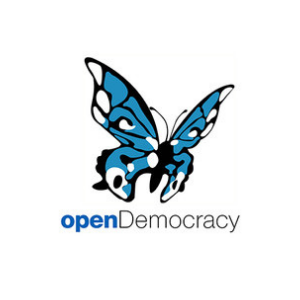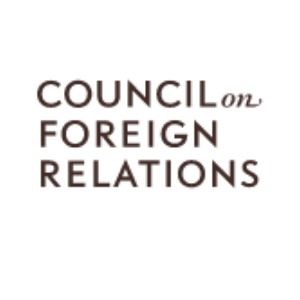
How maps can guide us to a better future
As explained in my new book with Ian Goldin – Terra Incognita: 100 Maps to Survive the Next 100 Years – maps can help make sense of the world around us.

As explained in my new book with Ian Goldin – Terra Incognita: 100 Maps to Survive the Next 100 Years – maps can help make sense of the world around us.

On July 7, Jair Bolsonaro, president of the world’s second hardest-hit country by COVID-19, announced he had tested positive for coronavirus and had mild symptoms. Shortly afterwards, he removed his mask to show everyone he was ok.

As consensus was finally achieved on July 7, a final draft of the UN-75 political declaration has been approved and is expected to be adopted by world leaders on Sept. 21 at United Nations headquarters through virtual means.

The only surprise about Jair Bolsonaro’s diagnosis for COVID-19 was that it took him so long to test positive.

Across the United States, the debate over the future of policing is gathering steam.

«I can’t breathe!» «Jeg får ikke puste!» George Floyds siste ord er blitt slagordet for en verdensomfattende bevegelse

“I can’t breathe.” The final words gasped by George Floyd are now a global meme. They were recorded on the mobile phone of a bystander while Mr. Floyd was being suffocated to death by a police officer in Minneapolis.

The coronavirus pandemic is exposing the quality of governments around the world. Many national leaders have failed the test—in contrast to the leaders of regions and cities

Having ravaged some of the world’s wealthiest cities, the coronavirus pandemic is now spreading into the megacities of developing countries.

The first wave of the COVID-19 pandemic may be receding in some parts of Western Europe, East Asia and North America, but it’s rapidly taking-off in Latin America, Africa and South Asia.

To say that COVID-19 changes everything is already a cliché. But it’s also true.

Following the recent ouster of Brazil’s popular justice minister, Sergio Moro, the world’s fourth-largest democracy is on the brink of plunging into even deeper instability.

As the novel coronavirus spreads throughout Latin America and the Caribbean, social media have been rife with reports touting some of the environmental and climate benefits of the pandemic.

Cities are at the center of this pandemic, as they have been during so many plagues in history.

The COVID-19 pandemic is painfully exposing the world’s many interconnected fragilities

In every crisis it is the poor, sick, disabled, homeless and displaced who suffer the most.

The COVID-19 pandemic brought the world’s bustling cities to a screeching halt

Published in Foreign Policy By Robert Muggah The world is convulsed by the novel coronavirus, but that is not the only pathogen that afflicts us. Criminal violence is also endemic, contagious, and highly virulent. More than 464,000 people were killed in homicides in 2017 (the last

Published in Council on Foreign Relations By Louise Marie Hurel The February 20 Brazil-EU Cyber Dialogue signaled the most recent step taken by Brasília and Brussels to collaborate on advancing responsible state behavior in cyberspace. While there have sometimes been differences in the two

With COVID-19 infections now evident in 176 countries, the pandemic is the most significant threat to humanity since the second world war. Then, as now, confidence in international cooperation and institutions plumbed new lows.

Far from merely reflecting an unequal distribution of economic means, rising inequality comes with a broad range of additional toxic side effects, many of which the COVID-19 pandemic has thrown into sharp relief. With the pandemic transforming life around the world before our eyes, this is a problem that can no longer be ignored.

Published in Project Syndicate By Robert Muggah The COVID-19 pandemic was not just predictable but inevitable, which makes the skyrocketing economic and human costs of the crisis all the more unacceptable. If the international community does not respond by creating new global structures to deal

Published in London Schools Economics By Renata Giannini Brazil’s process of drafting its first National Action Plan on Women, Peace and Security was marked by the political crisis that started during the government of its first female president, Dilma Rousseff, and culminated in her impeachment, followed by

Where a person is born and lives correlates with their overall life chances. Unsurprisingly, people living in environments characterized by high levels of economic and social inequality tend to be more exposed to violence and victimization than those living elsewhere.

Rio de Janeiro’s ultra-conservative governor, Wilson Witzel, was elected in 2018 on a tough-on-crime ticket.

I study violence in Latin America, and I’ve observed a sharp increase in reports of religiously motivated crimes in Rio de Janeiro since 2016, in particular attacks on “terreiros” – the temples of the Candomblé and Umbanda faiths.

After years of procrastination, Brazil has finally adopted comprehensive data protection legislation. In mid-2018, the government approved Law 13.709, known by its Portuguese acronym, LGPD.

They came looking for gold. Earlier this year, several dozen unauthorized prospectors, or garimpeiros as they are known in Portuguese, invaded a 1.4 million acre indigenous reserve in Brazil’s remote northern state of Amapá.

Violence has always been one of humanity’s most serious global challenges. Hundreds of millions of men, women, and children have been killed or maimed by armed conflict, crime, extremism, and sexual and gender-based violence. Not only does violence exact a massive social and economic toll, it depreciates human capital and undermines important civic and social institutions.

We are facing a climate emergency. More than 11,000 of the world’s scientists and successive reports issued by the International Governmental Panel on Climate Change say the evidence of human-induced global warming is irrefutable.

The Igarapé Institute uses cookies and other similar technologies to improve your experience, in accordance with our Privacy Policy and our Terms of Use, and by continuing to browse, you agree to these conditions.

O Instituto Igarapé utiliza cookies e outras tecnologias semelhantes para melhorar a sua experiência, de acordo com a nossa Política de Privacidade e nossos Termos de Uso e, ao continuar navegando, você concorda com essas condições.

